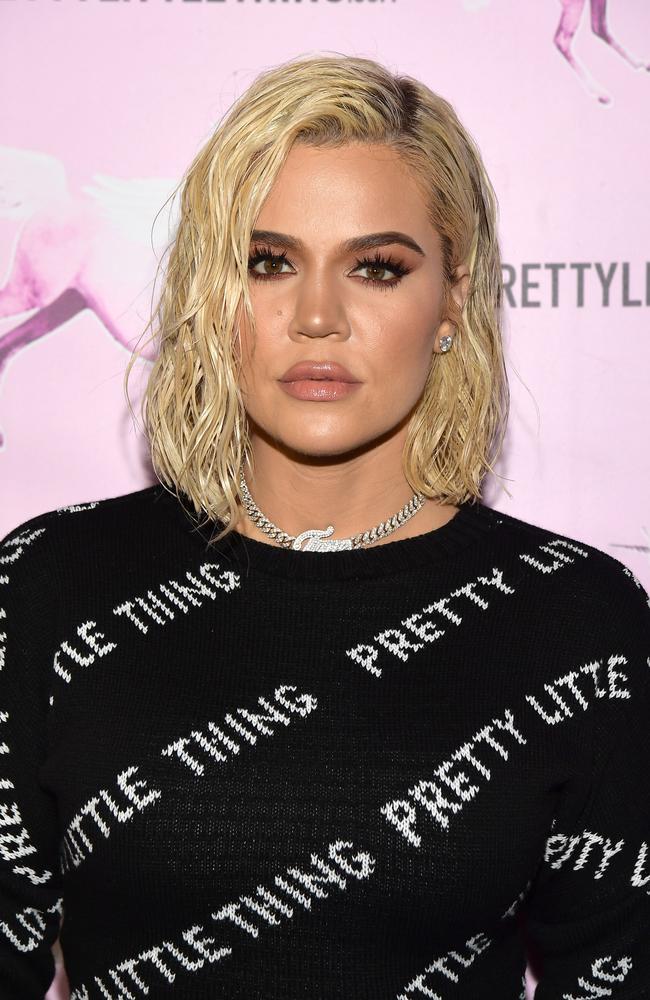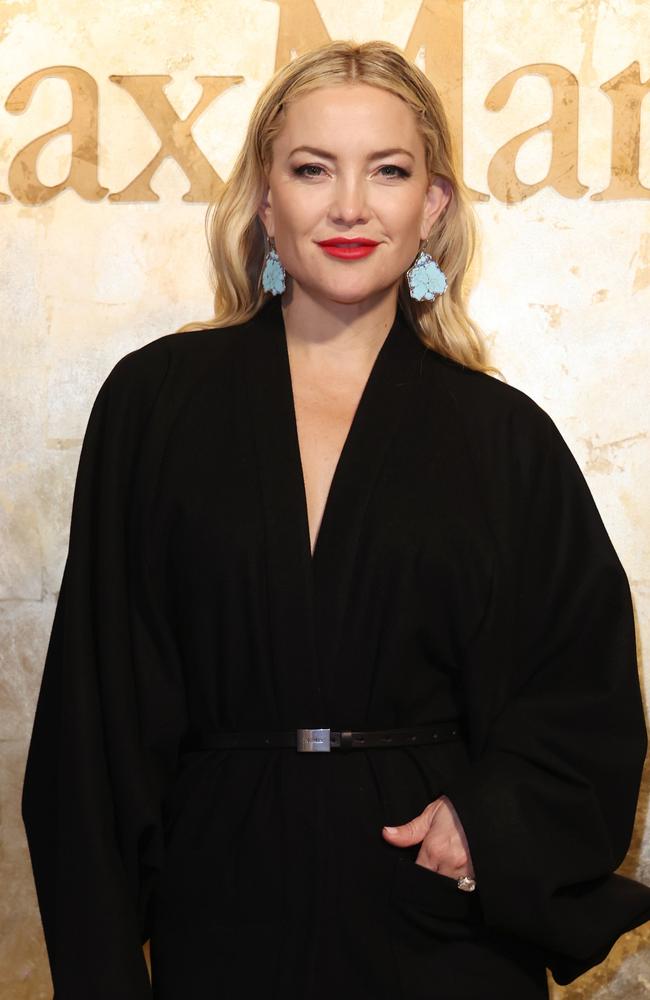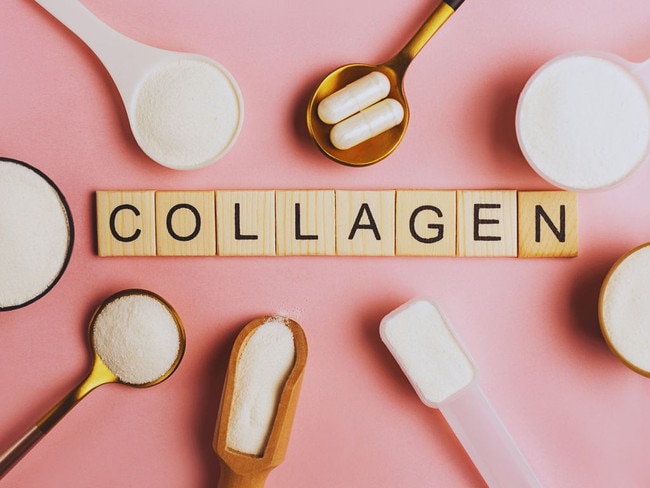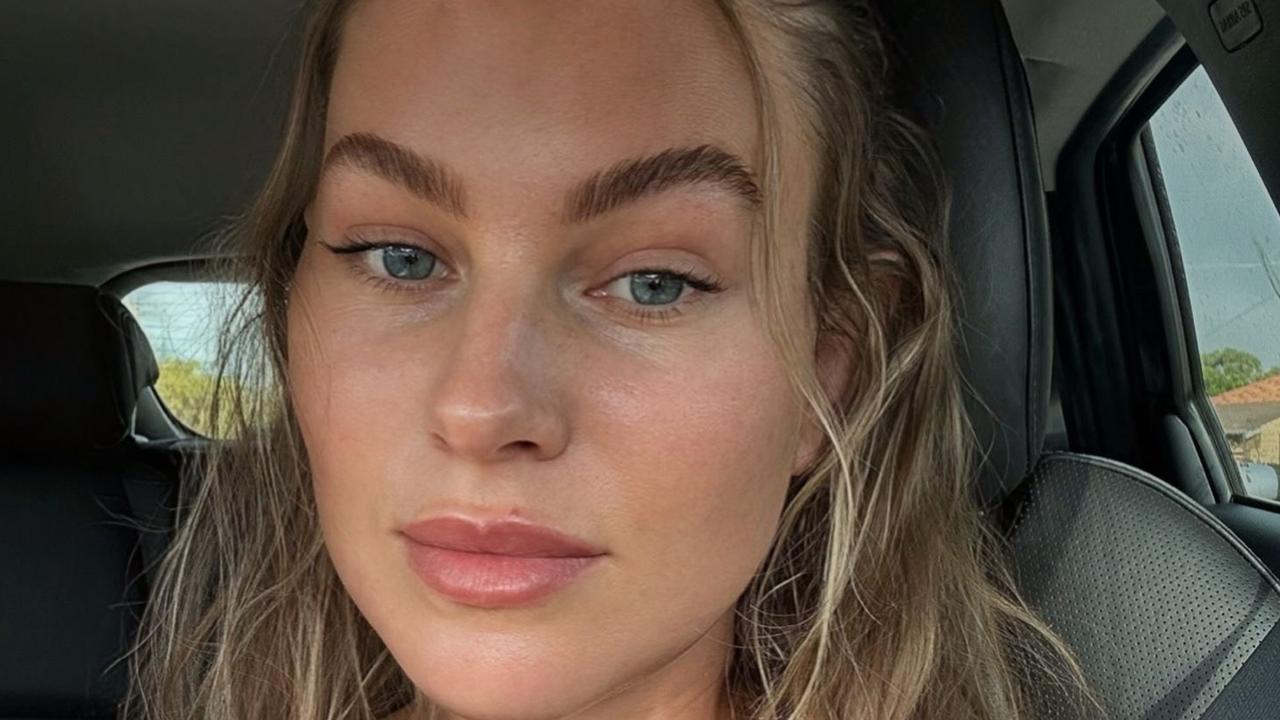Should you put collagen in your coffee like Jennifer Aniston?
Celebrities are popularising the trend but is it actually worth the hype and will it improve your skin?

Cosmetic Health
Don't miss out on the headlines from Cosmetic Health. Followed categories will be added to My News.
Is your morning coffee in need of an upgrade?
If adding a heap of powder to your espresso promised youthful elasticity for your skin, fewer wrinkles and luscious hair, then the answer would probably be yes. So it’s no wonder everyone’s talking about collagen. There are even claims that it is good for painful muscles and the answer to aching joints. Yet, experts are sceptical.
Collagen coffee recipes abound on TikTok and Instagram. A-listers including Jennifer Aniston have popularised the trend. On Instagram, in a video that has been liked more than a million times, Aniston can be seen adding a scoop of collagen peptide powder from Vital Proteins (she’s also the brand’s chief creative officer), plus a sprinkle of cinnamon into a mug, before pouring her Nespresso coffee over it and adding frothed milk.
She’s not alone. Khloe Kardashian has been the “global face and brand partner” for the collagen company Dose & Co since 2020. Kate Hudson’s wellness company InBloom sells a powder called Beauty Aura. The key ingredient? Marine collagen, sourced from the skin of “100 per cent wild-caught fish”.

It’s not just celebrities proselytising about it. Bryan Johnson, the controversial tech millionaire who wants to live for ever, takes 25g (0.9oz) of collagen peptides every day.
Online searches for collagen coffee have doubled in the past month. At Joe & the Juice, the up-market juice bar, you can pay for collagen-infused protein shakes with names like the Nutty.
Should we all be adding collagen powder to our weekly shop or does the science fail to live up to all the hype?

What is collagen?
Collagen is the primary building block of your body’s skin, muscles, bones, tendons, ligaments and other connective tissues.
How do we produce collagen - and how do we lose it?
Our bodies produce collagen using the amino acids from protein-rich or collagen-rich foods such as fish, eggs and meat. But as well as ageing, overexposure to the sun, smoking and alcohol all decrease collagen production.
I’ve seen collagen supplements all over social media. Should I buy them?
“There is a big delta between the science and social media in terms of evidence and benefit,” says John McGrath, professor of molecular dermatology at King’s College London. “To most clinicians and scientists it would seem counterintuitive that you could take a complex collagen protein by mouth, have your digestive system chomp it into individual amino acids and small peptides, and then expect there to be some sort of consciousness to rebuild the collagen, and then to have this occur where it’s needed in the aged or damaged skin.”

Do the beauty claims stack up?
“Large-scale trials evaluating the benefits of oral collagen supplements for skin and hair health are not available,” Dr Payal Patel, a dermatology research fellow at Massachusetts General Hospital, and Dr Maryanne Makredes Senna, a dermatologist, wrote recently on Harvard Medical School’s health blog.

Patel and Senna point to a review and analysis of 19 studies, published in the International Journal of Dermatology, that had a total of 1125 participants. Those who used the hydrolysed collagen supplements saw improvements in skin hydration, elasticity and wrinkles compared with a placebo, they explain. Still, it’s unclear whether these improvements were actually due to collagen: the supplements also contained other ingredients such as hyaluronic acid.
Leng Heng, a senior scientific officer for human nutrition at the European Food Safety Authority (EFSA), has said that in the EU “no health claims for collagen supplements have got the green light”.
Is it good for my muscles, bones and joints?
“Case not proven,” McGrath says. A recent meta-analysis found that collagen supplements appeared to improve osteoarthritis-related symptoms but the research has since been challenged.
There has been some research, however, suggesting that collagen supplements can aid recovery after exercise.
This article originally appeared on The Times.
Originally published as Should you put collagen in your coffee like Jennifer Aniston?


